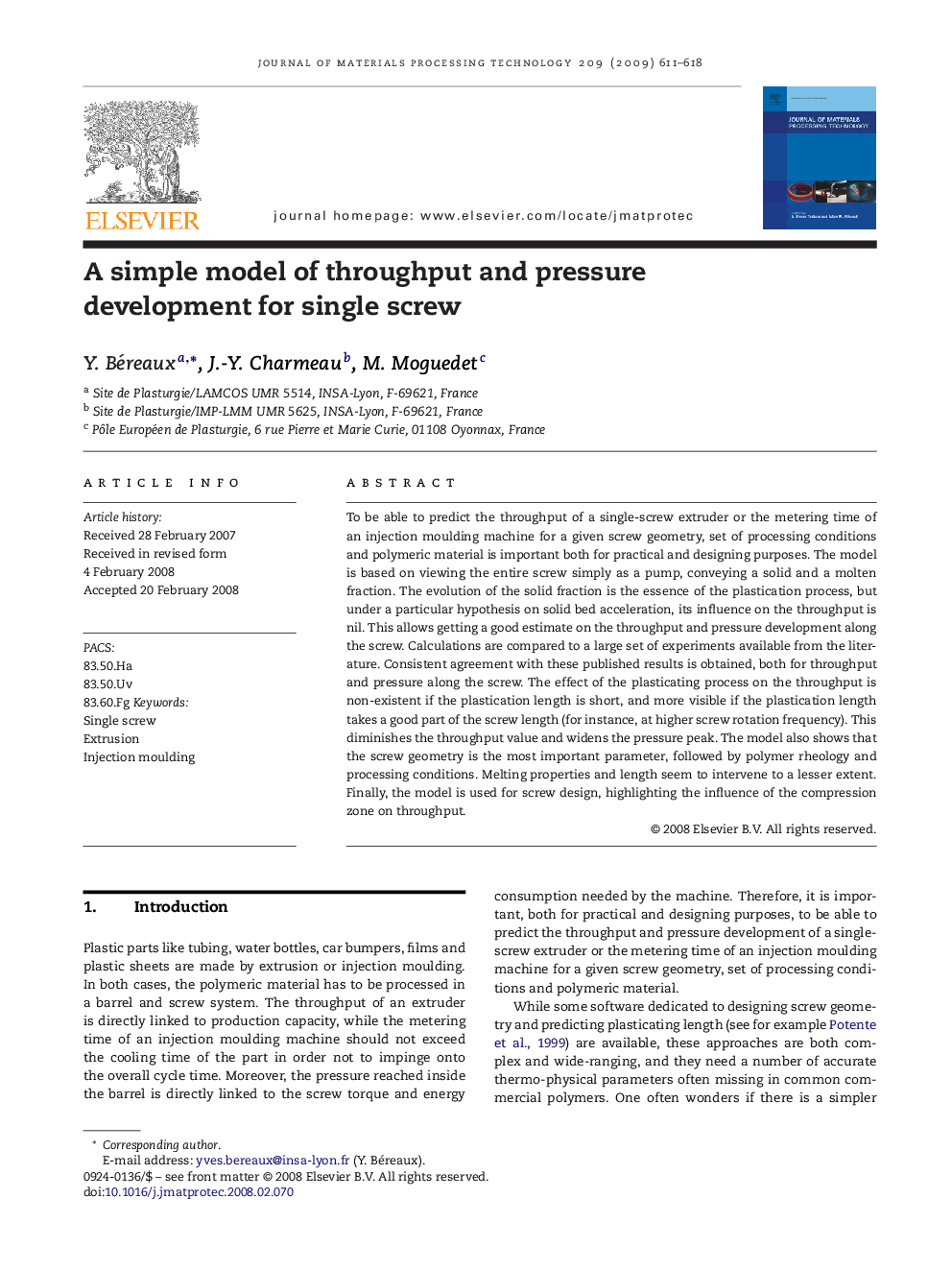| Article ID | Journal | Published Year | Pages | File Type |
|---|---|---|---|---|
| 798693 | Journal of Materials Processing Technology | 2009 | 8 Pages |
To be able to predict the throughput of a single-screw extruder or the metering time of an injection moulding machine for a given screw geometry, set of processing conditions and polymeric material is important both for practical and designing purposes. The model is based on viewing the entire screw simply as a pump, conveying a solid and a molten fraction. The evolution of the solid fraction is the essence of the plastication process, but under a particular hypothesis on solid bed acceleration, its influence on the throughput is nil. This allows getting a good estimate on the throughput and pressure development along the screw. Calculations are compared to a large set of experiments available from the literature. Consistent agreement with these published results is obtained, both for throughput and pressure along the screw. The effect of the plasticating process on the throughput is non-existent if the plastication length is short, and more visible if the plastication length takes a good part of the screw length (for instance, at higher screw rotation frequency). This diminishes the throughput value and widens the pressure peak. The model also shows that the screw geometry is the most important parameter, followed by polymer rheology and processing conditions. Melting properties and length seem to intervene to a lesser extent. Finally, the model is used for screw design, highlighting the influence of the compression zone on throughput.
